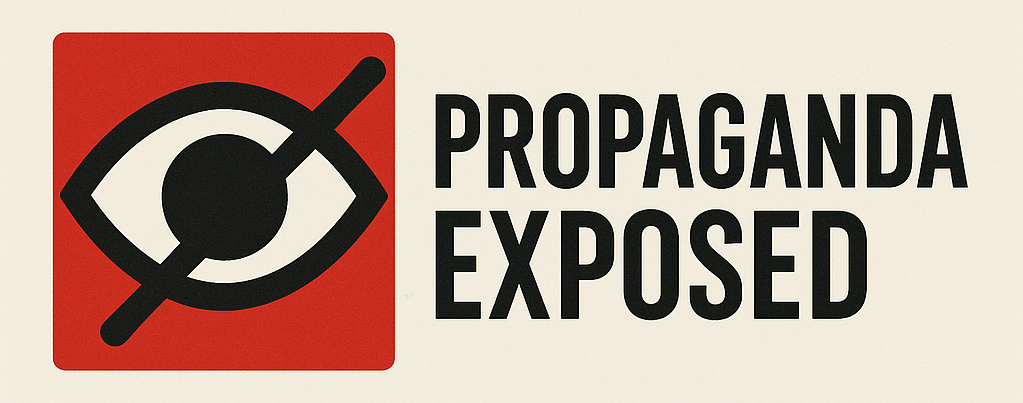This analysis examines a series of high-profile incidents in which the BJP–RSS political ecosystem deployed misinformation, manipulated imagery, and divisive narratives to shape public opinion. While each case might appear isolated, together they form a clear pattern of politically motivated distortion, aimed at influencing electoral outcomes and deepening communal divides.
1. Political Misinformation During the 2024 Elections
In April 2024, Prime Minister Narendra Modi falsely claimed during a campaign rally that former PM Dr. Manmohan Singh said, “Muslims have the first right on the country’s resources.”
In reality, Singh’s statement was inclusive — referring to backward communities, women, children, and minorities — not exclusively Muslims. This selective misrepresentation stripped the original context to stoke majority resentment and frame the Congress party as “minority appeasers,” a narrative that has been systematically cultivated by BJP–RSS discourse since 2014.
2. Misleading Campaign Imagery
The BJP circulated a glossy campaign poster highlighting infrastructure achievements, featuring what appeared to be a modern Indian metro system.
Fact-checkers quickly discovered that the image was actually of Singapore’s Mass Rapid Transit (MRT), with the “SMRT” branding digitally removed.
This was more than a design oversight — it was an intentional framing tactic, presenting foreign infrastructure as domestic achievement, in order to feed the perception of unprecedented progress under BJP governance.
3. Spread of Communal Conspiracies
The so-called “Love Jihad” conspiracy theory — the unfounded claim that Muslim men systematically seduce Hindu women to convert them — has been aggressively promoted by RSS affiliates like the Vishva Hindu Parishad (VHP) and amplified by BJP leaders.
Despite no credible evidence, the theory has:
- Shaped legislation in several BJP-ruled states, criminalising interfaith relationships under vague “conversion” laws.
- Fuelled mob violence and harassment of interfaith couples.
- Provided a moral panic narrative that diverts public attention from economic, governance, and corruption issues.
The repetition of this narrative in speeches, WhatsApp forwards, and partisan media is part of a deliberate strategy to polarise voters along communal lines.
4. Coronavirus Toolkit Fake-Out
In May 2021, BJP spokesperson Sambit Patra circulated a document online, alleging it was a “toolkit” created by the Indian National Congress in collaboration with foreign media to damage India’s image during the COVID-19 crisis.
Twitter flagged the post as “manipulated media” after multiple independent fact-checkers debunked the claim.
While the allegation collapsed under scrutiny, it served its short-term purpose: energising the BJP’s social media base, deflecting criticism of the government’s pandemic mismanagement, and discrediting opposition voices.
Analysis — The Common Playbook
These four incidents illustrate a consistent propaganda playbook used by the RSS–BJP network:
- Distort Opponent Statements: Selectively misquote or strip context to portray opponents as anti-majority or anti-national.
- Use Misleading Visuals: Repurpose foreign or unrelated imagery to artificially enhance the perception of achievements.
- Fuel Cultural Panics: Promote conspiracy theories that trigger emotional responses and suppress rational debate.
- Deploy Viral Disinformation: Release unverified “bombshells” during politically opportune moments, knowing that retractions never travel as far as the original claims.
Earlier Precedents Reinforcing the Pattern
- 2019 Pulwama–Balakot Narrative: Social platforms flooded with unverifiable patriotic claims, images, and videos immediately before voting.
- CAA–NRC Campaigns: Online networks falsely framed the protests as a “jihadi plot” funded from abroad.
- Sabarimala Controversy: Disinformation campaigns portrayed court orders as an “attack on Hindu faith” to mobilise street protests.
Democratic Consequences
The cumulative effect of these misinformation campaigns is profound:
- Corrosion of public trust: Citizens are conditioned to doubt independent media, fact-checkers, and even courts.
- Permanent polarisation: Once emotional narratives take root, policy debates become impossible without triggering identity-based hostility.
- Election manipulation: Shaping voter perception with falsehoods undermines the principle of informed consent in a democracy.
Conclusion
These are not isolated “mistakes” or rogue over-enthusiasms — they are deliberate, calculated acts in a sustained campaign of narrative control. Until misinformation is treated as electoral malpractice and penalised accordingly, India’s democratic process will remain vulnerable to those who thrive on distortion over truth.
Claim: Former PM Manmohan Singh said “Muslims have the first right on the country’s resources.” — implying Congress privileges minorities above others.
Circulated during April 2024 campaign rallies
Context restored: Dr. Manmohan Singh’s actual reference included backward communities, women, children and minorities collectively — the quote was selectively altered to create communal resentment and portray the opposition as favouring one group.
Fact-checks and original speech transcript (April 2024)
Claim: A BJP poster showcased an indigenous metro as proof of unprecedented domestic infrastructure — the image was presented as India’s achievement.
Widely shared on party channels and campaign materials
Verification revealed the poster used a photograph of Singapore’s MRT with the SMRT logo removed and presented it as a local system. This is an example of misleading imagery used to inflate perceived performance.
Image provenance checks and media fact-checks
Claim: “Love Jihad” is a coordinated, organised conspiracy where Muslim men are systematically seducing and converting Hindu women as part of a demographic plot.
Repeated across speeches, social media, and affiliated groups
Independent investigations and courts have found no evidence of an organised nationwide conspiracy. The narrative has nonetheless been weaponised politically, spawning state laws and vigilante incidents that target interfaith couples and communities.
Legal rulings, investigative reporting, human rights analyses
Claim: A leaked “toolkit” proved the opposition and foreign actors were plotting to smear India’s pandemic response — circulated as definitive proof of a foreign plot.
Shared widely by party spokespeople (May 2021)
Twitter and multiple independent fact-checkers flagged the document as manipulated or misrepresented. The claim functioned as a diversion from governance failures and successfully mobilised partisan audiences despite being debunked.
Twitter notices and independent fact-check reports



